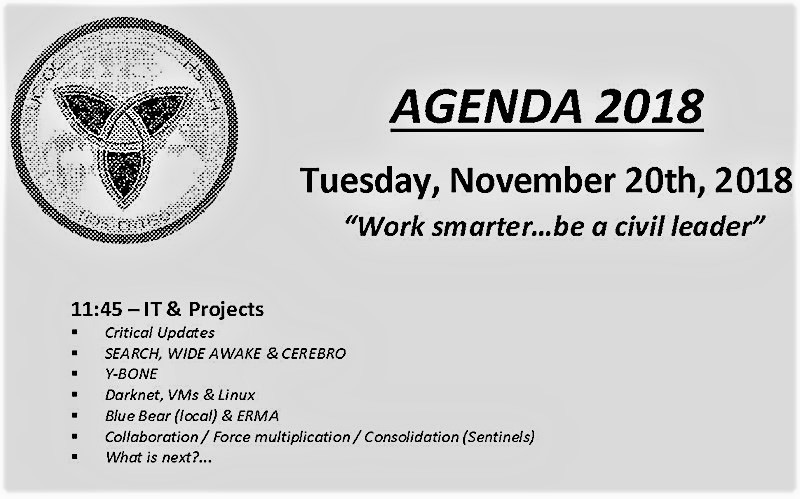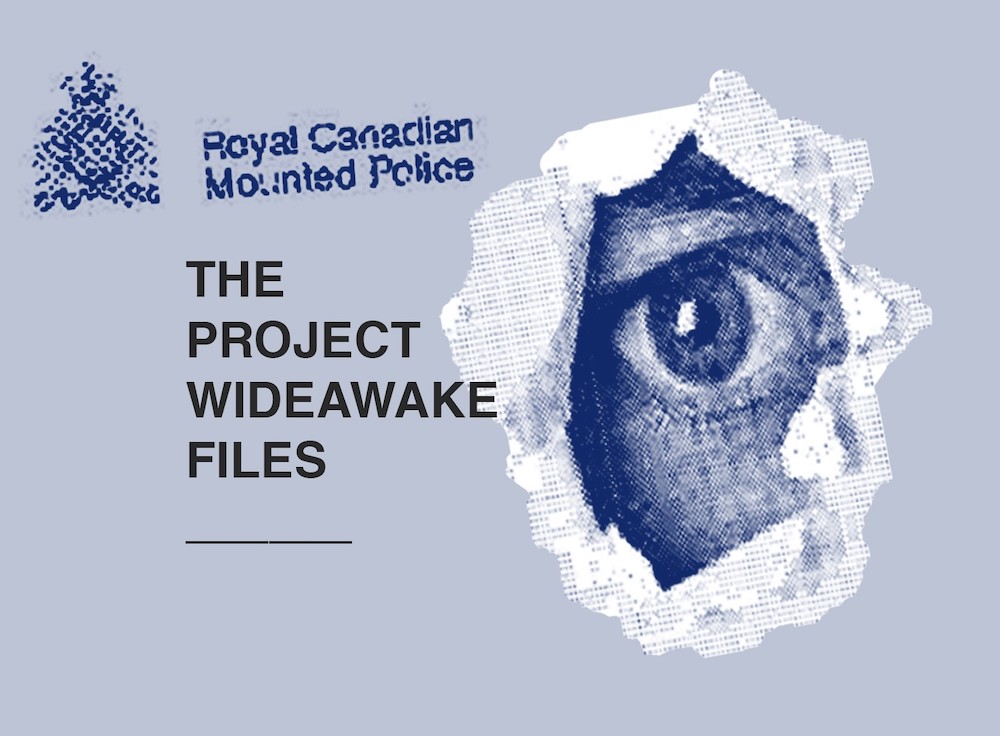The RCMP’s decision to name its Project Wide Awake online surveillance program after mutant trackers in the X-Men comic book series might seem like harmless fun.
But viewed against the scathing revelations of systemic racism and misogyny in police forces nationwide, it’s a troubling glimpse into police culture that unmasks the institution’s casual dehumanization of marginalized groups.
The Tyee first revealed the existence of Project Wide Awake, an operation monitoring individuals’ Facebook, Twitter, Instagram and other social media activity, in 2019.
In the X-Men comic series, Project Wide Awake is a covert government program that employs mutant-hunters, or “sentinels,” to monitor, track down and exterminate human mutants — the X-Men.
In the real world, Project Wide Awake is the RCMP’s large-scale online surveillance program designed to monitor internet users and political protest activity. In the RCMP’s version, Canadian residents are the mutants being targeted by “the hunters.”
But not everyone is an equal target. Due to power dynamics and social discrimination, poor, Black and Indigenous communities are disproportionately policed and surveilled. They’re often cast as the “bad guys.”
The operation’s mutant-hunting eponym is not coincidental or even an isolated incident within the RCMP. Documents obtained by The Tyee exposed references to two projects connected to Project Wide Awake with names plucked directly from the X-Men series: Sentinel (mutant hunting robots in the comic book series) and Cerebro (a powerful device to detect mutants’ locations).
While the RCMP was not forthcoming with Tyee reporter Bryan Carney about these projects’ exact purposes, their names alone and their mention in a covert operations meeting agenda for Tactical Internet Operational Support unit suggest further surveillance operations.

X-Men isn’t the only Marvel comics reference to have popped up in Canadian policing.
Earlier this year, a Toronto officer was photographed wearing a skull emblem for the Punisher, Marvel’s outlaw character who delivers vigilante justice. The Punisher features prominently in pro-police and white supremacist merchandise despite the creator’s efforts to scrub the association.
Society tells us that police exist to bring justice. Like comic book characters, this is fiction. Across the country, Black and Indigenous communities bear the brunt of policing’s impacts and are disproportionately targeted in street checks by police forces. They also experience disproportionate levels of police violence. Drug users, sex workers and people who are homeless are often harmed by the police through active harassment and violence or neglect.
Canada is built on policies that explicitly or implicitly operate to wipe out Indigenous peoples from their lands and suppress Black communities. Drug and sex work criminalization forces people into isolated situations so they can avoid the police, but they are then exposed to other dangers such as overdoses and client violence.
When some groups are cast as “other,” “different” or “foreign” by dominant society, they are perceived as a threat to be watched and managed, subject to prejudice, exclusion and dehumanization. In this context, the language and framing police choose matters.
The RCMP is mythologized in the Canadian imagination as an honourable force on horseback sporting the distinctive red uniform, a symbol of national pride and bravery.
In fact, as demonstrated against the Wet’suwet’en land defenders earlier this year, the RCMP is an increasingly militarized outfit designed to enforce colonial laws and control the population through threat of force, like other police forces in Canada.
Historically, RCMP officers were instrumental to the colonial project in expanding Canada’s rule in the West, dragging Indigenous children away from their families and cultures and dropping them into the arms of priests and nuns where they experienced the unthinkable horrors of residential schools.
The RCMP has consistently operated against the safety of Indigenous peoples from inaction surrounding cases of missing and murdered Indigenous women to killing Indigenous people while performing wellness checks to surveilling and arresting land defenders.
The values that underpin policing in Canada necessarily reflect the values of a colonial state interested in dispossessing Indigenous peoples of their land.
Black people have a different yet similar experience of violence and exclusion in Canada. They are often criminalized, surveilled and policed in public space and have been subject to a long history of enslavement, segregation, discriminatory immigration practices and police violence.
Popular media often portrays Black people as inherently criminal, violent, sexually deviant and possessing superhuman strength. These are widespread tropes that foment fear and justify suspicion and aggression towards Black people, including in Canadian policing. For instance, in 2016, the RCMP categorized a daytime vigil outside the Vancouver Art Gallery to remember the deaths of Alton Sterling and Philando Castile as a “serious crime-unfolding event” in a document related to its social media surveillance of the group.
The same document states that there was no indication of violence. This shows how police assume Black people are criminals, which might have served to justify social media surveillance in the first place.
If officers are institutionally and socially primed to see Black people as a threat, then the stage is set for the surveillance, contact and violence that has resulted in the needless criminalization and deaths of too many in Canada.
Recognizing a problem in the RCMP, the federal government provided the force with $238 million for body cameras this month. However, there is little evidence that body cameras do anything but record police violence. Even when police violence is recorded, impunity is common.
Body cameras are an expensive and unproven way to try to improve police accountability through technology while effectively increasing police surveillance powers. In fact, body cameras can be used as an enhanced way to criminalize subjects by letting police create a massive database of surveillance footage of communities that are already over-policed. This data has the potential to be used by the RCMP’s Tactical Internet Operational Support unit against those protesting social injustice.
Ultimately, something as trite as a comic book name for a spy program simply corroborates the mountains of evidence that policing in Canada is a toxic and harmful institution.
We must interrogate policing as we know it. We must demand our governments support communities with evidence-backed approaches that produce positive outcomes on a broad scale. Investing in the social determinants of health will have a lasting impact. Instead of funding increased surveillance and policing, governments must fund education, mental health and social support programs led by communities themselves, provide housing, and decriminalize drugs and sex work.
Building real community safety demands we move from a mindset of “fighting crime” to one of ending harm. ![]()
Read more: Rights + Justice, Science + Tech
















Tyee Commenting Guidelines
Comments that violate guidelines risk being deleted, and violations may result in a temporary or permanent user ban. Maintain the spirit of good conversation to stay in the discussion.
*Please note The Tyee is not a forum for spreading misinformation about COVID-19, denying its existence or minimizing its risk to public health.
Do:
Do not: